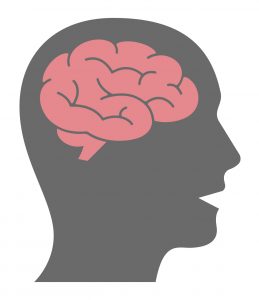Psycholinguistics (language, thinking, reality)
 Can we think without language? Or does language enable us to form thoughts in the first place? And what is the connection between language and thinking? Philosophy of language tries to answer questions like these. It has been a branch of linguistics since the middle of the 19th century, but the problem of language and thought was already addressed in antiquity. Philosophy of language is studied equally by philosophers and linguists, but this paper considers the topic exclusively from a linguistic perspective.
Can we think without language? Or does language enable us to form thoughts in the first place? And what is the connection between language and thinking? Philosophy of language tries to answer questions like these. It has been a branch of linguistics since the middle of the 19th century, but the problem of language and thought was already addressed in antiquity. Philosophy of language is studied equally by philosophers and linguists, but this paper considers the topic exclusively from a linguistic perspective.
Piaget: Thought determines the possibilities of forming and using language
Although Piaget was not a linguist, but a biologist and developmental psychologist, his studies on infant language acquisition allow conclusions to be drawn about the relationship between language and cognition. He assumes that „cognitive development (i.e., the gradual acquisition of thinking strategies) decisively determines our language development and speech“ (Beyer/ Gerlach 2018, 206).
As evidence, he points to experiments on quantity perception in children. In one of these experiments, the same amount of water is poured from one container into a differently shaped container whose shape results in a higher standing water level. The children believe that it must now be more water. It is not until between the ages of 5 and 8 that children come to believe „that changes in the appearance of the quantity do not affect the quantity itself“ (Szagun 2016, 207). According to Piaget, this insight is not influenced by language because it is a „fundamental change in thinking“ (Szagun 2016, 207).
Sapir-Whorf hypothesis: language determines our thinking.
Two of the best known representatives of the opposite position are Benjamin Lee Whorf and Edward Sapir. The so-called Sapir-Whorf hypothesis states „that our native language determines the way we think and perceive the world“ (Deutscher 2010, 149).
The hypothesis is often equated with the principle of linguistic determinism or the principle of linguistic relativity because it is based on these principles.
The principle of linguistic determinism states that the particular language spoken by a person determines, i.e., determines, thinking. The principle of linguistic relativity assumes that speakers of different languages perceive reality differently (cf. Werlen 2002, 201).
The Sapir-Whorf hypothesis has been heavily criticized over time. One of the main criticisms is that, according to the hypothesis, „our native language sets limits to our intellectual horizons and restricts our ability to understand ideas or distinctions used in other languages“ (Deutscher 2010, 267).
Boas and Jakobson: The connection between culture and language.
Anthropologist Franz Boas is not concerned with the connection between language and thought in his research, but rather with the connection between culture and language. In his view, although every culture can express everything linguistically, the respective needs of a culture dictate that its members must express certain information linguistically, while other information is not explicitly required (cf. Werner 2002, 183 f.).
The linguist Roman Jakobson takes up Boas‘ anthropological considerations and transfers them to linguistics. Jakobson, too, takes the approach that every culture or every language is theoretically capable of expressing everything and established the maxim that languages differ „in the information [that] each language forces its speakers to reproduce“ (Deutscher 2010, 173).
Deutscher: The Boas-Jakobson principle.
Following on from Boas and Jakobson, Deutscher posits the Boas-Jakobson principle as a response to the Sapir-Whorf hypothesis. Taking Boas‘ and Jakobson’s explanations into account, he describes the influence of language on thought. If a language induces its speakers to express certain information linguistically, this information must also be considered mentally (cf. Deutscher 2010, 175).
In this sense, our native language forces us to pay attention to specific details, to distinguish certain terms, and to have certain associations (cf. Deutscher 2010, 267). Thus, „language habits can eventually solidify into mental habits“ (Deutscher 2010, 175). Deutscher cites experiments and studies that prove that our native language has a cognitive influence on memory, perception, and associations as well as an influence on our practical abilities, such as our sense of direction (cf. Deutscher 2010, 267 f.)
